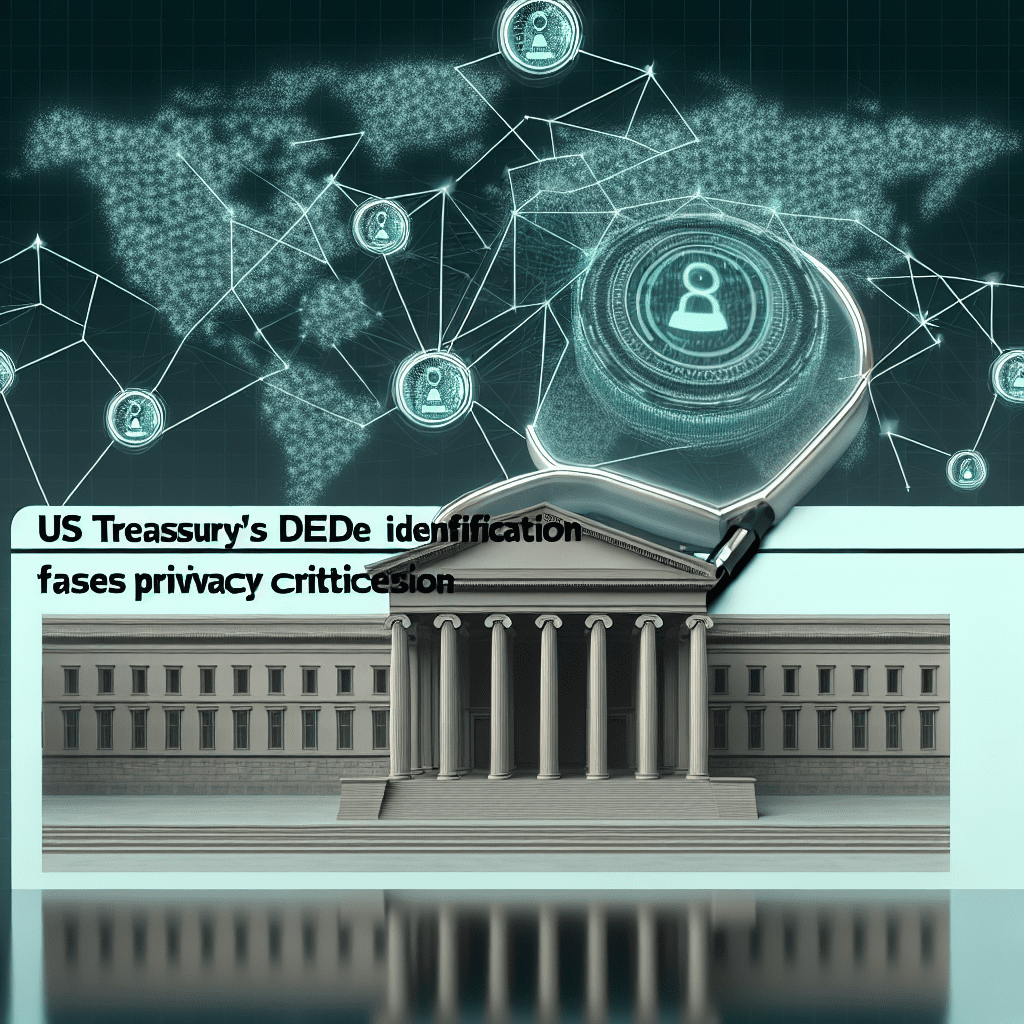
The US Treasury is investigating the incorporation of identity checks directly into decentralized finance (DeFi) smart contracts, a decision that critics argue could undermine the foundational principles of permissionless finance.
Recently, the agency launched a consultation under the Guiding and Establishing National Innovation for US Stablecoins Act (GENIUS Act), enacted in July. The Act mandates the Treasury to assess new compliance mechanisms to combat illicit financial activities in cryptocurrency markets.
One proposed idea involves embedding identity verification directly into smart contracts. This approach would enable a DeFi protocol to automatically authenticate a user’s government ID, biometric credential, or digital wallet certificate prior to authorizing a transaction.
Proponents contend that integrating Know Your Customer (KYC) and Anti-Money Laundering (AML) processes into blockchain infrastructure could enhance compliance and hinder criminal activities within DeFi.
Treasury examines digital ID verification in DeFi. Source: Laz
Fraser Mitchell, Chief Product Officer at AML provider SmartSearch, informed Cointelegraph that such mechanisms could “uncover the anonymous transactions that make these networks appealing to criminals.”
“Real-time monitoring for suspicious activities can facilitate platforms in risk mitigation, detection, and ultimately prevention of money laundering through their networks,” Mitchell added.
Related: GENIUS Act to invigorate new ‘killer apps’ and payment services: Sygnum
DeFi ID verification: safeguard data or invite surveillance?
Mitchell recognized the privacy compromise but asserted that viable solutions exist. “Only essential data needed for monitoring or regulatory audits should be retained, with all other information discarded. Any stored data should be encrypted at the row level, minimizing the risk of a significant breach.”
Conversely, critics argue that this proposal could undermine the essence of DeFi. Mamadou Kwidjim Toure, CEO of Ubuntu Tribe, likened the initiative to “installing cameras in every living room.”
“While it may appear to be a convenient compliance shortcut on paper, it transforms a neutral, permissionless structure into one governed by government-sanctioned identity credentials. That fundamentally alters the essence of DeFi,” Toure told Cointelegraph.
He cautioned that if biometric or governmental IDs are linked to blockchain wallets, “every transaction could potentially become permanently traceable to a real-world individual. This erodes pseudonymity and, consequently, the ability to conduct transactions without surveillance.”
For Toure, the implications extend beyond compliance. “Financial liberty hinges on the right to a confidential economic existence. Embedding ID at the protocol level undermines that right and sets perilous precedents. Governments could censor transactions, blacklist wallets, or even automate tax collection through smart contracts.”
Related: GENIUS Act yield ban might drive trillions into tokenized assets — former bank executive
Who gets marginalized?
Additional concerns involve exclusion. Billions globally still lack formal identification. If DeFi protocols mandate government-issued IDs, entire populations, including migrants, refugees, and the unbanked, risk exclusion.
“It may hinder access for users who opt for anonymity or cannot fulfill ID obligations, thereby limiting DeFi’s democratic essence,” Toure remarked.
Data safety also presents a critical issue. Connecting biometric databases to financial activities could lead to catastrophic breaches, compromising both monetary assets and personal identities in a singular incident.
Critics emphasize that the dilemma isn’t merely between criminal havens and comprehensive surveillance. Privacy-centric tools like zero-knowledge proofs (ZKPs) and decentralized identity (DID) standards provide methods to verify eligibility while safeguarding full identities.
Using ZKPs, users can demonstrate they are not on a sanctions list or confirm they are over 18 without disclosing their identities. DID frameworks allow users to maintain verifiable credentials and disclose them selectively. “Instead of relying on static government IDs, users possess verifiable credentials they can share at their discretion,” Toure stated.
Magazine: Scottie Pippen mentions Michael Saylor’s warning about Satoshi discussions

